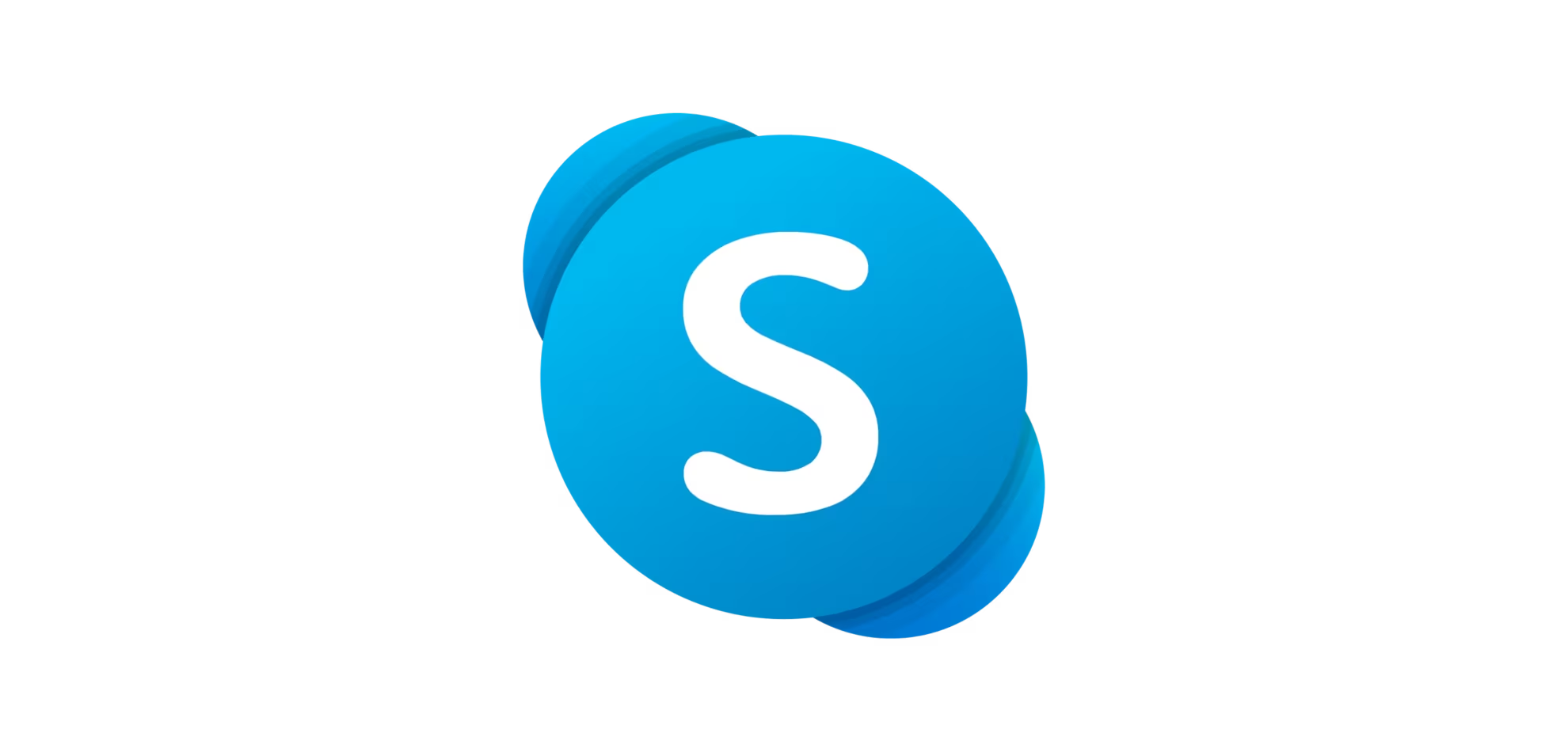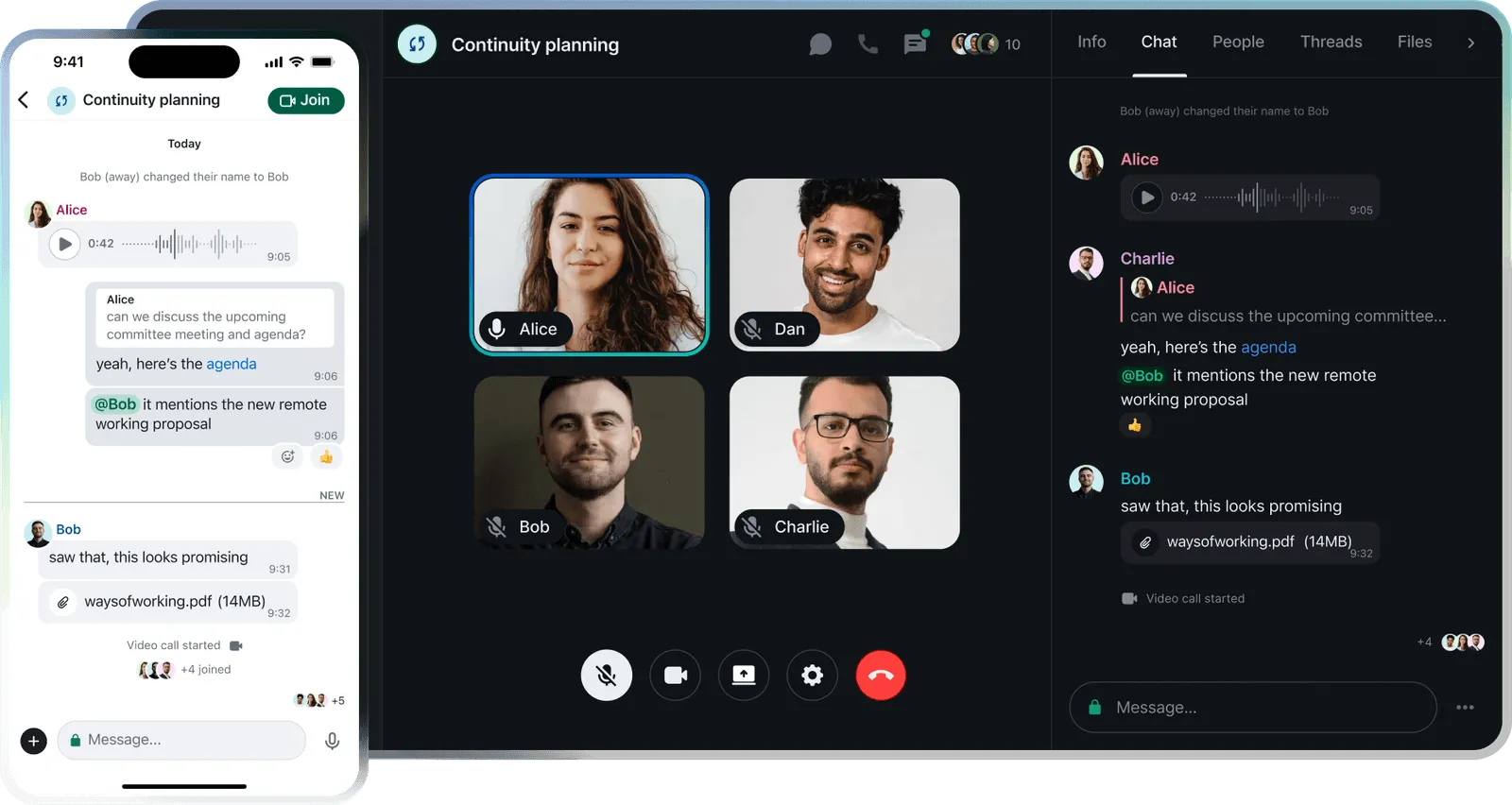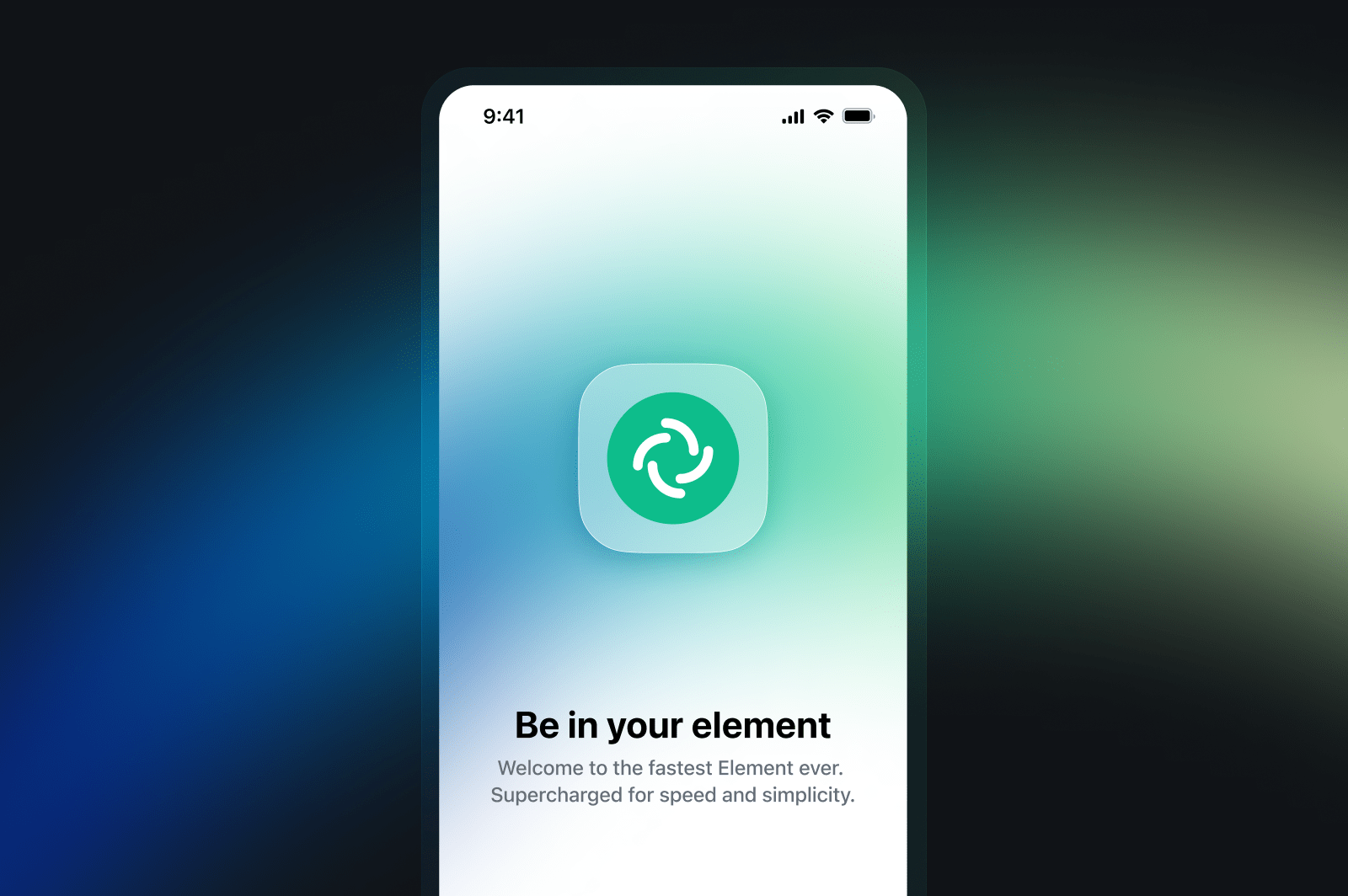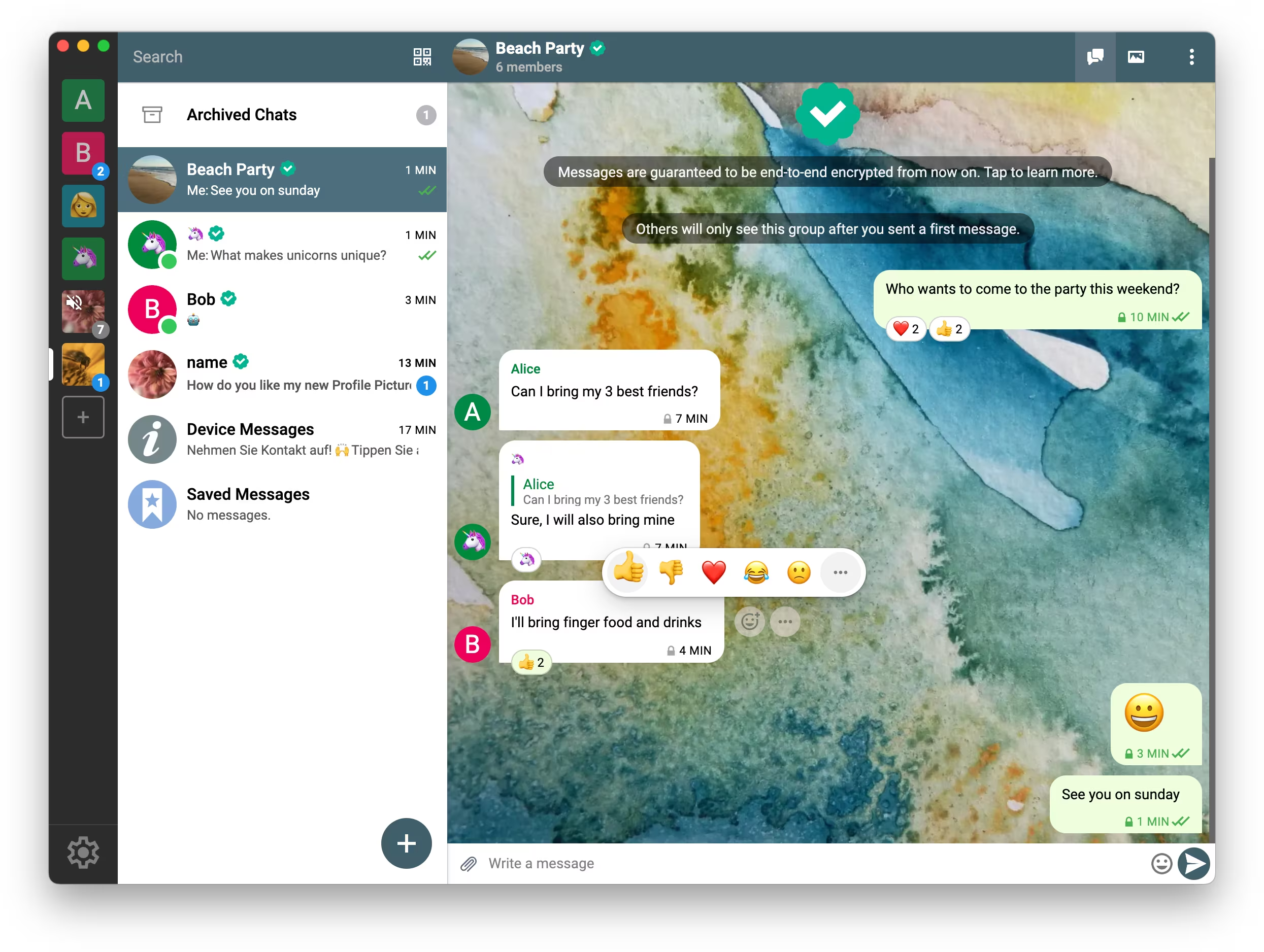Skype Is Gone: The FOSS Alternative
On the 5th May 2025, Skype has shut down across the world, ending a very long existence as an Internet messenger with audio and video calls capabilities available very early on, before anyone else. I remember very vividly making audio calls from one country to another with Skype back in 2004 using my PocketPC (several years before the iPhone). It was a peek into the future of communications, and for a long time there was really nothing like it. Skype has progressively lost a lot of popularity following its acquisition with Microsoft back in 2011 (hardly surprising…), losing its P2P infrastructure along the way, and it’s now gone for good.

Microsoft wants you to jump onto Teams, which is an even worse choice! Slow, clunky, full of bugs. And SLOW.
Most of you may be already using something else, but in case you are wondering where to go next, and you’d like to consider software that is likely not going away anytime soon, FOSS alternatives should be on the table.
There are many options, but I’m going to set a very specific set of criteria to meet for an application to be considered. Here goes:
- End to End encryption for all your messages (that’s expected nowadays)
- Group chat (encrypted as well)
- Audio calls
- Video calls
- Open and documented protocols (allowing different clients)
- Not relying on a phone number as an ID (Bye Bye Signal and your fake privacy)
- FOSS Clients available for all platforms (at least Linux, Windows, Mac, IOS and Android)
- Clients working well with each others
- Servers that you can host by yourself
It turns out that this list will narrow down the list very, very quickly. In reality, your options are actually quite few. Since it took me quite a lot of time to test different things, I will present you first with the best solution. And afterwards we will review why other options did not make it.
One more thing: I am well aware that Skype was also used to make calls to landlines and mobile phones across borders, but this is a feature that is hard to replicate, and somewhat of an add-on. If you need that kind of feature, you will have to rely on other apps on phone or websites that propose such services. Consider this out of scope for the present discussion.
Best Alternative: Matrix Network and Its Clients
We have been using the Matrix network at Boiling Steam for years now, so we have quite some experience already. All the conditions above are met. You can do audio, video calls, E2E is supported if you want it, there is the concept of group chats, the protocol is open and well documented, you can create accounts using an email address, there are clients for all platforms, and you can host your own Matrix relay or server as well.

All good, right? Well, on paper, yes, but the reality is more nuanced.
There are some issues that are worth pointing out. For Matrix, the best and more featureful clients are Element for both desktop and mobile - but the mobile version is now split between the legacy client, the original Element, and a new client (developed in Rust) that they are still developing, Element-X. Element-X uses a newer version of the protocol that supposedly accelerates the synchronization of messages, but in reality it’s hardly working as expected, and has almost zero features compared to the original Element client. Since many people are not giving up on Element until there is feature parity, the team behind Element has now to keep both clients alive. Not ideal.

So, in a normal world, I’d recommend people to start with the legacy Element client, but the folks behind Element have lost their mind and decided to prevent people from creating new accounts with the legacy Element client on mobile.
This means you need to use a computer to create an account in the first place, and then use the legacy Element client on phones to be able to log in. Since Matrix requires you to verify the validity of each client, this means you need to verify the account you created in the browser with the mobile account you activate in Element, which is really an extra pain in the ass, for no good reason. Decisions like them call for a facepalm.
People will tell me that there are many other clients for Matrix, but in reality most of them only support a fraction of the features of the original Element, and suffer from poor UI choices as well and much less support. But things are always changing, and clients may improve or better clients may emerge down the road.
When it comes to hosting the server part, it can be done, and you can use Synapse for that, but it’s well known to be a fairly resource intensive server, so you’ll need a relatively powerful VPS or bare-metal hardware in order to host it. If that’s something you don’t want to worry about at first, you can rely on the Matrix.org services.
Since Matrix is still in heavy development, how healthy is the organization behind it? Well… not doing so well currently. They were in the red for a long time, and fired half of their staff not too long ago. Their future is still in question - while all of their code is FOSS - so some kind of community support is possible in case things go south.
Despite all the issues mentioned above, when it works, Element is a robust and reliable solution across devices and OSes. There are numerous bugs, but the core functions work more or less as expected.
Other Protocols
There are a few other options I have seriously considered over the past few months:
- XMPP
- IRC and its new standards
- Deltachat
Let me give you a quick explanation why they are not good alternatives at the moment, on the set of criteria that I mentioned before.
XMPP: Great Protocol, Lack of good clients
The forgotten protocol. It used to be the reference protocol for Facebook Messenger at some point, and other platforms as well, until it was dropped in favor of closed alternatives. Still, XMPP is a very powerful protocol that benefits from numerous extensions to rival what closed platforms can do. The protocol is great, there are many ways you can host servers as well, as XMPP is fairly light to self-host. Prosody is a good choice for example. So, do we get the best of both worlds? The only issue is with the client side of things.
On Android, the landscape is pretty good. You have Conversations.im that does everything you expect from a modern messenger client. On iOS… it’s not as good. Apparently there’s Monal but it seems to have a very small community and I am not sure how well everything is supported. If your friends or family use iOS, you may be in for some pain.
On desktop, the situation is somehow worse! Which is hard to believe… We have a plethora of XMPP clients on Linux, but most of them suck ass (Pidgin is awful, for example, and supports none of the advanced functions of the protocol). There’s Gajim, Kaidan as well, and they are both broken, unable to make audio calls work in my tests. The only client that was working well with Conversations.im was Dino - it’s a bit light on the features side (it does not compress videos automatically when sending large ones) but audio and video calls work well, and there is a good support for OMEMO encryption that is widely used in mobile clients.
On Windows, it’s not great either. So XMPP sounds like a good deal if you are on Android, OK-ish on Linux, and pretty bad on all other platforms. I had really high hopes for that one, but it does not look like it’s evolving in a positive direction right now, and as you can guess, it does not have much top-of-mind at the moment.
IRC: Hardly Moving
There’s IRC too, but the older protocol does not offer half of the features we need, and the newer protocol Irc v3 has been in development for years and key items like how messages should be edited is not yet aligned, specs-wise. So it might not be going anywhere. It’s cool to see that IRC is still around though, it’s probably one of the easiest protocols to roll out out there if you just mainly want text chat.
Deltachat: Lacking Features
Deltachat looks good at first sight feature-wise. It relies on the existing email infrastructure to build a chat client on top of it. It’s compatible with all email servers but you need to tweak things a bit before being able to use it with services like Gmail for example.

Still, it’s an exciting option, but there’s just not a lot of people talking about it so this remains probably quite niche for now (even more than XMPP?). Deltachat has clients on Android and iOS, and Electron or Tauri-based clients for the desktop platforms. In terms of feature set, it lacks video calls (since it uses the email infrastructure) so you would need to rely on Jitsi for that, which makes this solution fall short compared to Matrix or XMPP.
Closing
Right now in 2025, Matrix seems to be the most mature replacement out there right now, despite the ongoing confusion with the mobile clients. New protocols don’t emerge every other day, so I doubt we will see anything really new anytime soon. So there you have it. If you join Matrix, don’t forget to come and say hi on our Boiling Steam channel!
